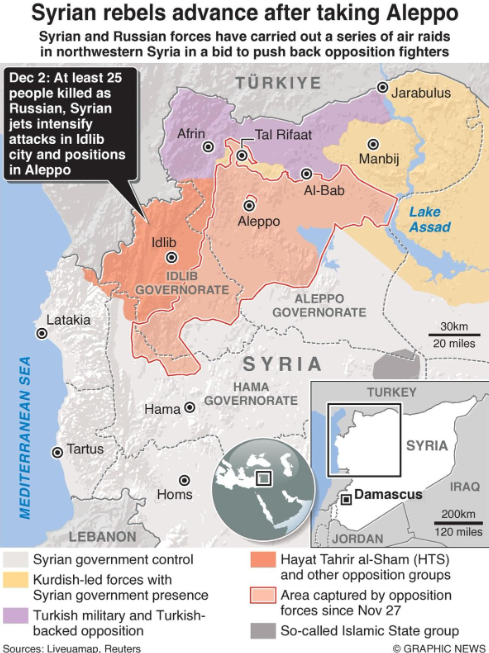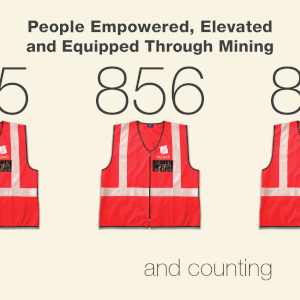Mirna Fahmy-Diplomatic Inside
After years of stabilisation, at least, chaos and terrorism strike Syria more aggressively than before shaking Assad’s position as a president further.
On November 26, 2024, Israeli Prime Minister Benjamin Netanyahu announced that the cabinet had approved a 60-day ceasefire agreement with Hezbollah in Lebanon whereas the Israeli army will withdraw completely from South Lebanon. He then warned Syria’s president Bashar Al-Assad, “Do not play with the fire,” impeding the agreement and supplying weapons from Iran to Hezbollah in Southern Lebanon, or else he would destroy the Syrian regime if it continued its support to Hezbollah.
Mohamad Ali El Husseini, the Saudi-Lebanese Shiite Islamic researcher and cleric, posted on his X account that “the ceasefire agreement between Israel and Hezbollah is very fragile.” He explained further that Hezbollah’s military leadership in the south has decided to carry out operations to capture Israeli soldiers in several areas in the south with the aim of carrying out a prisoner exchange with the Israeli army.
Before a whole day passed on the ceasefire and Netanyahu’s threats, a group of militias that labelled themselves “rebels,” “Nusra,” and “Tahrir al-Sham Forces” erupted and took over Aleppo and Idlib in just two days.
They are not rebels; they are ISIS and Türkiye’s interventions:
After the appearance of those rebels, many figures, politicians, and news agencies pointed them out as ISIS, Jihadists, Daesh, and Al-Qaeda, which are the Sunni extremist groups, because they have the same black flag with an Arabic sentence in white as “No other God except God.” According to the Syrian Observatory for Human Rights (SOHR), a UK-based monitoring group, more than 600 people have been killed, including 107 civilians, and tens of thousands have been displaced. Those rebels were seen in photos and videos waving flags of Türkiye, and they even hung it on one of the citadel walls in Aleppo. It was confirmed by various reports that these rebels are of other nationalities like Uzbeks, Uyghurs, Afghans, and other countries in Central Asia.
In that regard, there are many news organisations like Reuters, Al Jazeera, and others emphasising differently who the rebels are. Türkiye is home to over 3.5 million Syrian refugees, facing mounting domestic pressure to address the issue. As Syrian rebels capture Aleppo and advance toward Damascus, there are many perplexing assumptions, like did Türkiye quietly back this offensive to weaken Assad and pave the way for refugee repatriation? And with Ankara’s long-standing ties to rebel factions and its military presence in northern Syria, some see this as a calculated move to reshape the conflict in Türkiye’s favour to get rid of the refugee crisis.
As usual in any opposition appearances, there are always people taking sides with parties involved. Some claimed on social media that the rebels would protect the Christians and the freedom of religion. However, what happened was opposite to that. There were videos of militants of al-Nusra Front dismantling decorations and destroying Christmas trees in the cities of Aleppo and Idlib.
Some Syrians posted on X that a big number of residents are fleeing due to fears of violence & terrorism caused by Türkiye’s mercenaries in the Kurdish neighbourhoods where the Kurds, even the elderly women, are taking up arms to defend Kurds and Christians.
There were highlights from some Syrians and some right-wing individuals that the fall of Assad means a new genocide of Christians in the Middle East.
Russia’s operation in Syria:
Since the civil war in Syria because of ISIS, Russia solidified its military presence in the region, particularly through its naval facility in Tartus and its airbase in Latakia. This began in 2015 when Assad’s regime was on the brink of collapse. Moscow launched airstrikes aimed not only at ISIS but also at various opposition groups, reinforcing Assad’s position and showcasing Russian military capabilities. This includes deploying special operations forces and private military contractors like the Wagner Group to assist in combat operations. Despite facing challenges from rebel forces, Russia remains committed to maintaining Assad in power as part of its strategic calculus against the U.S. influence in the Middle East.
This time, Russia wasn’t able to retain Aleppo under Assad after putting out the rebels’ aggressive activities in the past years. Hayat Tahrir al-Sham rebels surge through Aleppo as Russia is bogged down in Ukraine. Russia can only muster limited air support to Syria. The stretched Russian air force and ineffective Syrian allies highlight Moscow’s faltering grip. The rebels, with alleged Turkish support, are capturing significant territories, exposing Assad’s dependence on overextended allies like Russia, Iran, and Hezbollah.
Lieutenant General Sergey Kisel, commander of Russian forces in Syria, has been dismissed following the dramatic rebel capture of Aleppo, Reuters reported. Syrian forces suffered heavy losses as Hayat Tahrir al-Sham seized Aleppo Airport, the governor’s HQ, and the Umayyad Mosque in their boldest offensive since 2016.
The Syrian Ministry of Defence promises a counterattack to “restore all areas” and eliminate all of the terrorism, even as rebels continue to advance. Meanwhile, Assad reassured UAE’s Sheikh Mohammed bin Zayed that Syria, with a little help from its friends like Putin, is totally capable of defeating “terrorists.”
Israel’s stance on what’s happening in Syria:
Now Aleppo’s international airport is under the so-called rebels, as according to many media reports, the airport was under Hezbollah’s control. Through Hezbollah, Iran backs up Assad to fight both Israel and any Sunni militant groups like ISIS.
The Russian Embassy in Egypt announced on its X account that the United States is helping terrorists in Syria again and is happy that they stormed Aleppo. It added that Washington is making another attempt to destroy the member state of the Arab League by unleashing the thugs it has sponsored on the Arabs and intends to flood the long-suffering Syrian lands with new torrents of blood.
Al-Husseini has revealed further on his X account that “the secrets of the secrets” are that what happened and is happening in Syria is a Russian-Turkish understanding with American consent and an Israeli request to end the presence of Iran and its militias in Syria. After Syria, it is Iraq’s turn, with the support of the Syrian revolutionaries.
“With an American decision to expel Assad’s forces and the Iranians, and the Syrian Democratic Forces (SDF) taking control of Aleppo International Airport, there will be no supplies for Iran and Hezbollah from Aleppo Airport after today,” the Israeli journalist and researcher Edy Cohen affirmed on his X account.
Analysis on social media was added further on why Russia is slightly sliding Syria’s issue more than before. The Emirati journalist and political researcher in Middle East affairs, Amjad Taha, posted on his X account that “Russia signals to a potential Trump administration: We’ll remove Iran from Syria if you offer us better terms in Ukraine negotiations.”
What’s happening to Syria’s regime under Assad these days has been described similarly to Iraq’s latest president, Saddam Hussein, in the last days of his era, by an Egyptian media personality, Tawfik Okasha.
Al-Husseini offered advice on his account to Hezbollah leaders and its members in Syria and Iraq, “to pledge their pledge, unite themselves, and write their wills.” He ascertained that “whoever bought them yesterday will sell them today.” There are two paths before them, he added, either leave vertically, survive, and return to where you came from, or be captured and chopped up.
The ceasefire agreement has been broken, and Israel is continuing its operation and strikes in Southern Lebanon to put down Hezbollah.


